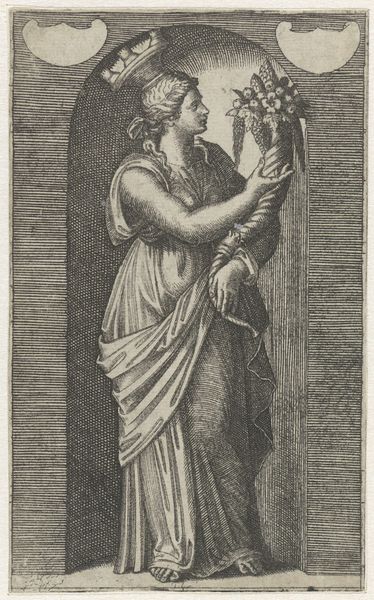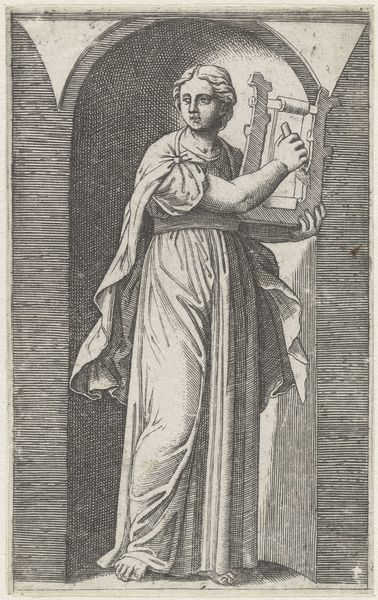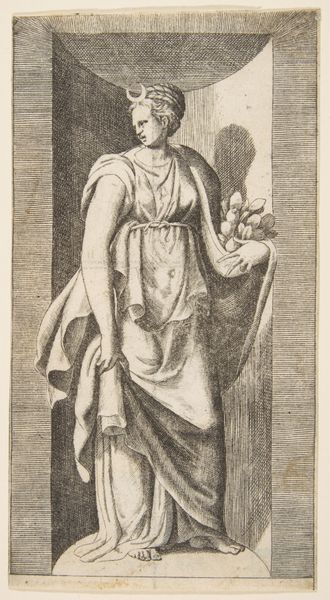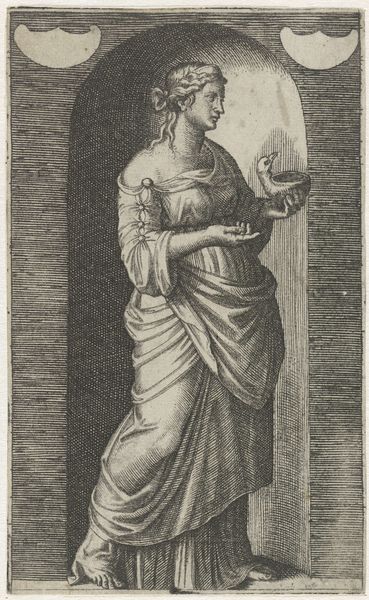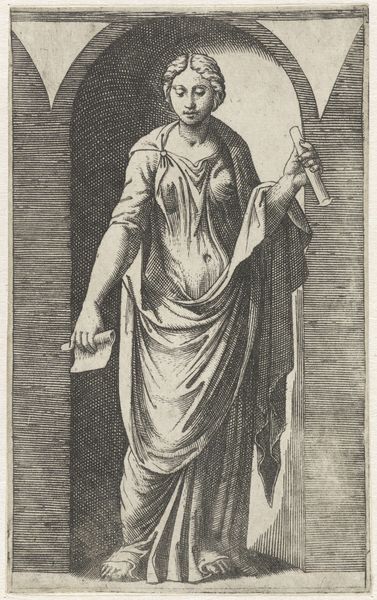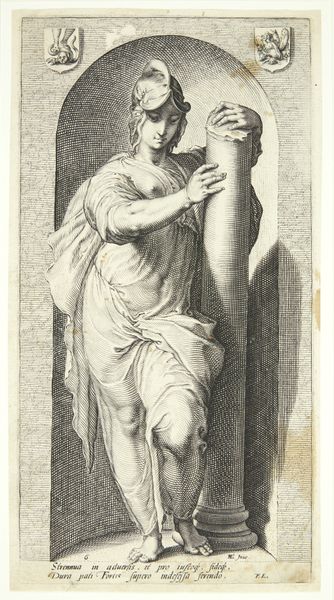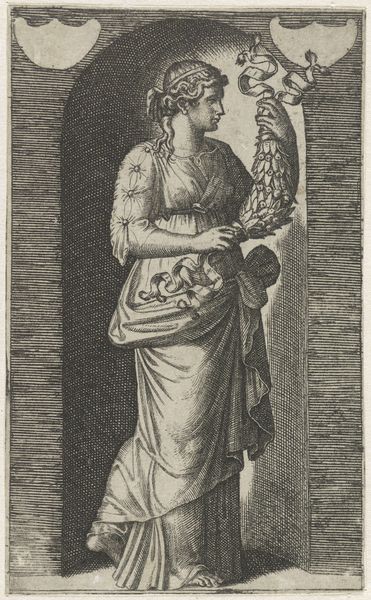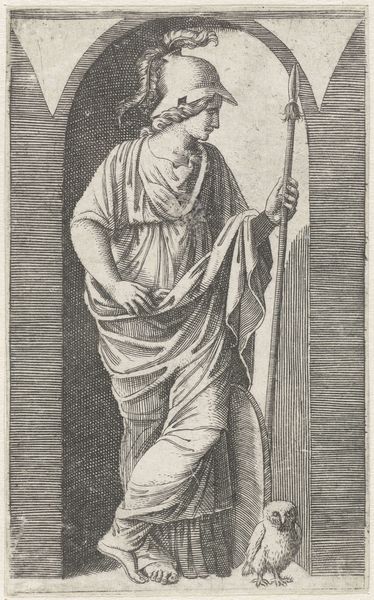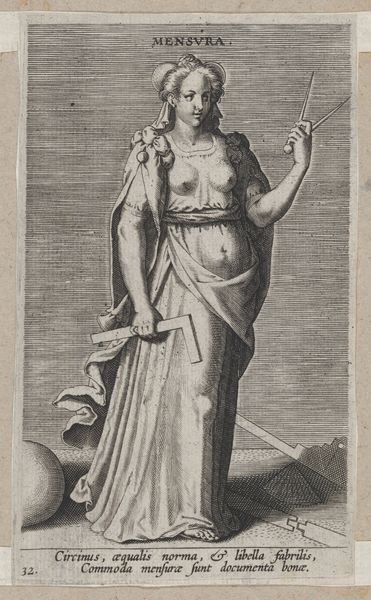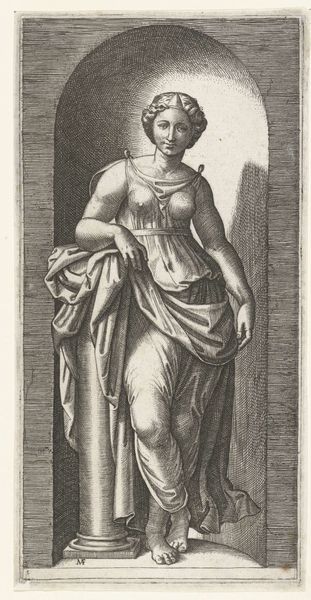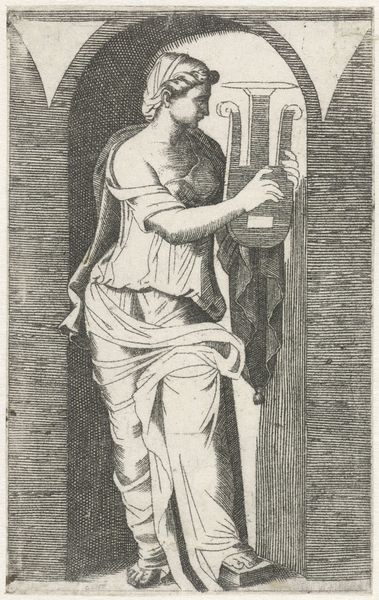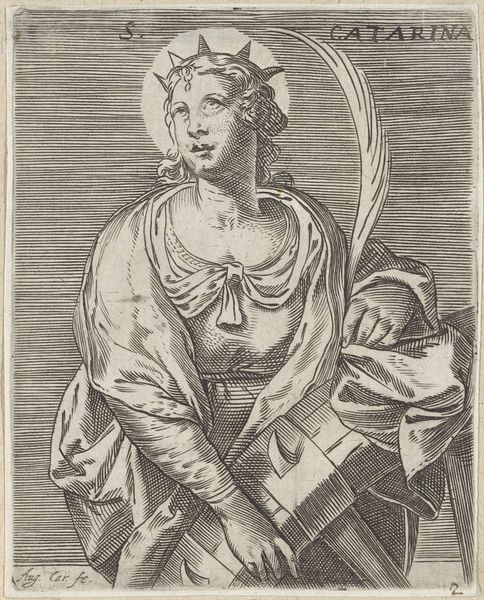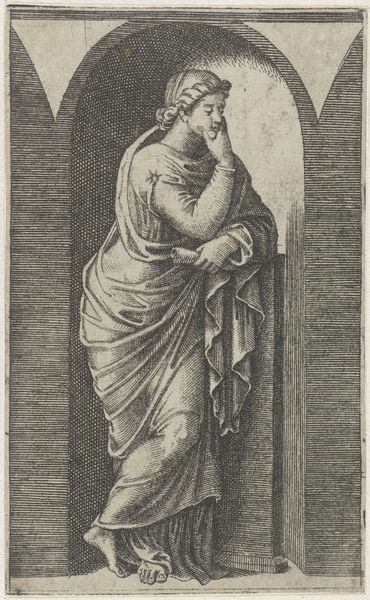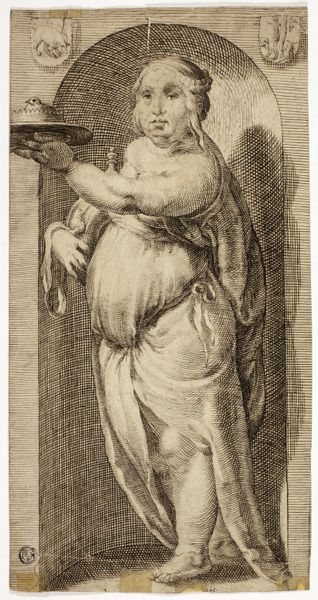
A muse standing in a niche, left arm resting in a ledge 1526 - 1536
0:00
0:00
drawing, print, engraving
#
portrait
#
drawing
# print
#
figuration
#
history-painting
#
academic-art
#
italian-renaissance
#
engraving
Dimensions: sheet: 6 5/16 x 3 3/8 in. (16 x 8.5 cm)
Copyright: Public Domain
Giulio Bonasone made this print of a muse in the mid-16th century using engraving, a process that requires immense skill and time. The design is incised into a metal plate, likely copper, with a tool called a burin. The depth and density of these lines determine the image’s shading and texture. Notice the fine, closely-spaced lines that create the darker areas, and the more open lines that suggest highlights. This painstaking process allowed Bonasone to create a delicate balance of light and shadow, giving the figure a sculptural presence. The muse’s serene expression and classical drapery evoke a sense of timeless beauty, typical of the Renaissance period. Yet, the print also reflects the growing market for art, where multiples allowed wider audiences to access and appreciate artistic skill. The labor-intensive engraving process stands in contrast to the increasing demand for art objects, revealing a tension between craft and commerce. By focusing on the materials and making of this print, we gain a deeper understanding of its cultural and historical significance, moving beyond the traditional art historical focus on subject matter and aesthetics.
Comments
No comments
Be the first to comment and join the conversation on the ultimate creative platform.
